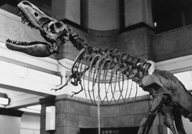All Living Things Are Friends—Lullabies of Birds, Insects and Fish
(“Seibutsu mina tomodachi kyoiku hen: Tori mushi sakana no komori uta”) 1987 / Color / 16mm / 165 min
1987 / Color / 16mm / 165 min
Narration: Kobayashi Kyoji
Song: Kato Tokiko
Staff: Abe Yutaka, Arase Mitsuo, Ishikura Masako, Imai Shigeyuki, Imai Hiroshi, Ueno Tamako, Ono Tadashi, Ono Matsuo, Ono Yoshinobu, Katto Isamu, Kikuchi Shu, Kusunoki Tokuo, Takasaka Satoshi, Kobayashi Ken, Kondo Katsuyuki, Shimizu Shizue, Segawa Hiroshi, Takaiwa Hitoshi, Takahashi Tatsuo, Takizawa Rinzo, Tajima Tadanori, Tanikawa Yoshio, Tezuka Yo, Tokizane Shohei, Nakao Kanji, Nakano Kunio, Nishi Keiko, Nozaki Keizo, Hamada Hideo, Fujibayashi Shinji, Mori Takuji, Yano Chikara, Watanabe Kazuhiko, Watanabe Masami
Production Company: The All Living Things Are Friends Production Committee
Source: Japan Document Film
This film was begun under the working title The Man Who Became a Bird: A Cinema Essay by Kamei Fumio. It starts with shots of Alaskan wilderness and red salmon spawning, then moves to the Tokara Islands (near Tanegashima in southern Japan), Kamakura and areas deep in the mountains of Chichibu. Themes such as the earth, the environment, society, education and the relationship between human beings and nature about which Kamei had long considered are related via the narration. At the end of the film, as dinosaur bones are shown, the narration tells us, “Listen, you humans!! Too much is too little. Too much strength is no good. Too much size is no good. Look at me! Look at me well.” It continues, “We’d better heed the dinosaur’s warning—the antidote for reckless knowledge is wisdom. We must set our sights on coexistence rather than wanton competition; we must remember that we can be satisfied even if we make sacrifices.” Over 20 film companies contributed film footage. The staff consisted entirely of volunteers and all production costs were covered by donations. The film took three years to produce. Kamei fell ill in December 1986, but finished the last of the editing to complete this, his last film. He passed away the following year.
